When it comes to camping, you may think of it as a perfect outdoor activity where you can relax, unwind, and immerse yourself in nature’s beauty. The tranquility of the wilderness, the crackling sound of the campfire, and the starry night sky are all elements that make camping an appealing experience for many.
But before dismissing camping entirely, it’s worth considering the potential benefits it offers. Disconnecting from the digital world and embracing the simplicity of nature can provide a much-needed break from the hustle and bustle of everyday life. It offers an opportunity to rejuvenate, recharge, and reconnect with loved ones, away from the distractions and responsibilities of modern living.
So, if you find yourself questioning the allure of camping, wondering if it’s truly worth the effort, this article is here to address your concerns and shed light on the many reasons why camping can be a rewarding experience.
The Appeal of Camping
Camping, a beloved recreational activity that has stood the test of time. For decades, people have sought solace in the great outdoors, captivated by its allure. It provides a much-needed escape from the hustle and bustle of urban life, offering a sanctuary of tranquility amidst nature’s embrace. The act of pitching a tent, meticulously building a fire, and skillfully cooking over an open flame brings about a sense of self-sufficiency and accomplishment like no other.
So, pack your gear, leave behind the chaos of everyday life, and embark on an adventure that promises moments of awe and wonder. Let the serenity of nature envelop you, as you bask in the serenade of chirping birds, the rustling of leaves, and the gentle caress of a breeze. Camping, a timeless escape that beckons you to embrace the beauty of the natural world and rediscover the magic that lies within.[2]
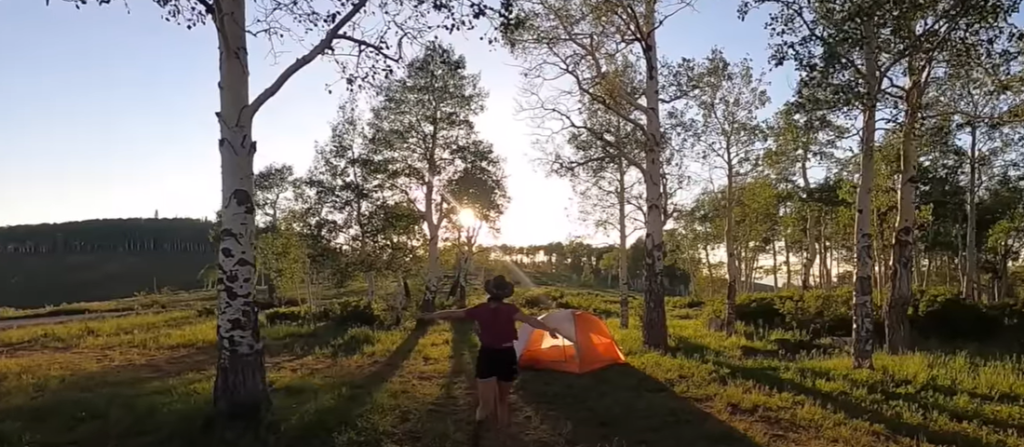
Exploring the Flip Side
Despite the many charms of camping, it’s not everyone’s cup of tea. The thought of sleeping outdoors in a tent, braving the elements and roughing it out may deter some from even considering this recreational activity. And that’s perfectly alright.
Not all of us are built for camping, and that is completely valid. Each individual has different preferences and comfort levels when it comes to their leisure time. While some thrive in the simplicity and ruggedness of camping, others may find it uncomfortable and unappealing.
It’s essential to acknowledge that there are various reasons why someone may choose not to go camping – from concerns about safety and discomfort with insects or animals, to simply not enjoying outdoor activities. Some may have health conditions that make camping challenging, while others may have personal preferences for different forms of relaxation and recreation.
What matters is respecting these preferences and finding alternative ways to bond and recharge with loved ones. Whether it’s opting for a cozy cabin retreat, embarking on a road trip adventure, or exploring local attractions, there are plenty of options to create meaningful experiences and connect with nature in ways that align with individual comfort and interests.
By embracing diverse perspectives and understanding that not everyone finds joy in camping, we can foster inclusivity and ensure that leisure activities cater to a wide range of preferences. So, let’s celebrate the variety of ways we can bond with loved ones and enjoy our leisure time, while respecting and supporting each other’s choices.[2]
Comfort and Convenience
For some individuals, the mere thought of camping may initially evoke feelings of discomfort and inconvenience. The prospect of pitching a tent, contending with unpredictable weather conditions, and utilizing outdoor facilities can present physical challenges. However, it is important to note that these concerns are not insurmountable.
Fortunately, advancements in technology have brought forth a wide array of innovative camping gear and equipment. These products have been meticulously designed to offer unparalleled comfort and convenience, all while preserving the authenticity and essence of the great outdoors. Take, for instance, the emergence of spacious and ergonomic tents that provide ample room for relaxation and rest. These tents are equipped with cutting-edge features, ensuring a cozy and hassle-free camping experience.
The evolution of portable stoves has also revolutionized the culinary aspects of camping. With these compact yet efficient cooking appliances, campers can relish in delicious meals even in the midst of nature. Furthermore, the introduction of innovative camping toilets has addressed the concerns surrounding hygiene and sanitation. These state-of-the-art facilities offer optimal convenience and cleanliness, enabling campers to fully enjoy their outdoor escapades.
By embracing these advancements and conveniences, camping becomes an inclusive and enjoyable experience for all. It opens up new horizons, allowing individuals who may have had reservations about roughing it out in the wild to fully immerse themselves in the wonders of nature. So, whether you are an experienced outdoor enthusiast or a novice camper, rest assured that the camping landscape has evolved to cater to your needs, making every adventure a memorable and gratifying one.[2]
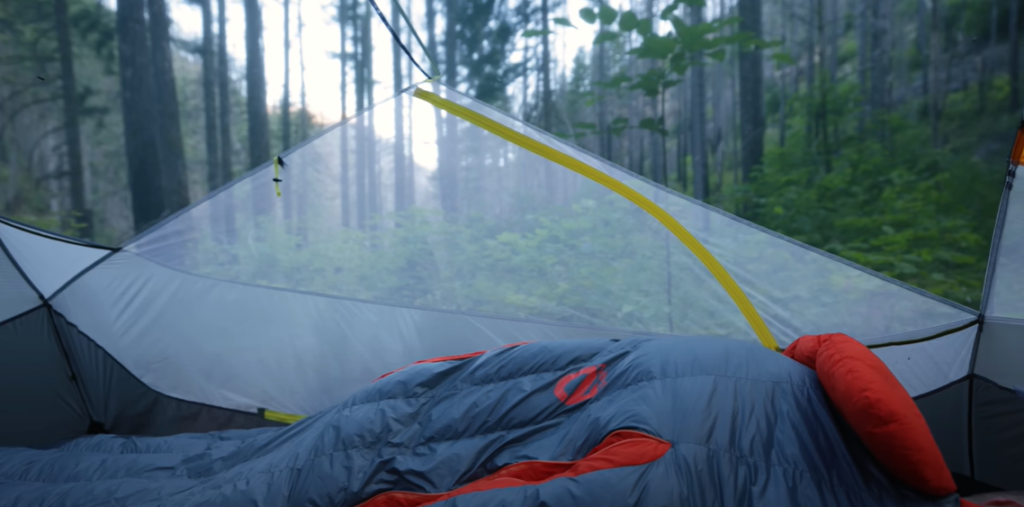
Bugs and Wildlife
One of the primary reasons some individuals may not choose to go camping is due to concerns about bugs and wildlife. While it’s understandable that the thought of encountering insects or animals may be daunting, it’s essential to note that with proper precautions and knowledge, these fears can be mitigated.
Before heading out on a camping trip, it is highly recommended to thoroughly research the area you will be visiting and familiarize yourself with any potential risks or hazards. This includes learning about the specific types of insects and animals commonly found in the region, as well as any safety protocols or guidelines recommended by local authorities. By understanding the local wildlife, you can better prepare for and avoid any potential encounters.
In addition to research, it’s important to pack appropriate gear that can help protect you from bugs and potential encounters with wildlife. This may include insect repellent to ward off mosquitoes and other insects, protective clothing such as long sleeves, pants, and closed-toe shoes to minimize exposure, and first aid supplies to address any bug bites or injuries that may occur.
Furthermore, practicing proper food and waste management is crucial in minimizing the attraction of animals to your campsite. Ensure that all food is properly stored in sealed containers to prevent animals from being lured by the scent. Additionally, dispose of waste properly by following designated waste disposal guidelines or using techniques such as burying waste in a deep hole away from your campsite.
By taking these extra precautions and being well-prepared, you can confidently enjoy your camping experience while minimizing the risks associated with bugs and wildlife. Remember, knowledge and preparation are key to creating a safe and enjoyable outdoor adventure.[1]
Weather Worries
Another concern that may discourage individuals from going camping is the unpredictability of weather conditions. While it’s true that weather can affect outdoor activities, it’s essential to remember that with proper planning and preparation, camping trips can still be enjoyable even in less-than-ideal weather.
One of the best ways to mitigate concerns about weather is to choose a campsite with ample shelter options. Consider sites with covered picnic areas, designated tent pads, and the availability of rental cabins or yurts in case of inclement weather. These options provide a safe haven to retreat to and still enjoy the outdoors even if it’s raining.
In addition to sheltered spaces, it’s important to pack appropriate gear for different types of weather. This may include waterproof tents and tarps, warm and insulating clothing for colder temperatures, and sunscreen and hats for hotter climates. It’s also recommended to bring extra layers in case of a sudden shift in weather conditions.
Lastly, it’s important to keep an eye on weather forecasts leading up to your camping trip. If severe weather is predicted, it may be best to reschedule or find a different location. Safety should always be a top priority, and it’s better to err on the side of caution when it comes to unpredictable weather.[1]

Lack of Amenities
For some individuals, the thought of roughing it in the wilderness without modern comforts and amenities may not seem appealing. However, as mentioned previously, many campsites now offer a range of amenities that can make the camping experience more enjoyable for all.
Furthermore, many modern campers have also embraced the concept of “glamping,” which combines the traditional camping experience with luxurious amenities such as comfortable beds, electricity, and gourmet meals. This trend has made camping more accessible to those who may not be keen on roughing it entirely, allowing them to still enjoy the beauty of nature without sacrificing modern comforts.
Moreover, campgrounds often offer stunning scenic views, breathtaking sunsets, and the chance to witness wildlife in their natural habitats. The tranquil sounds of chirping birds and rustling leaves create a serene and peaceful atmosphere that can be truly rejuvenating.
In recent years, there has also been a growing trend of eco-friendly camping, where campers focus on minimizing their impact on the environment. This includes practices such as using biodegradable products, practicing Leave No Trace principles, and supporting sustainable camping initiatives.
Ultimately, camping is a versatile and inclusive activity that can be tailored to fit the preferences and needs of each individual. With so many options and advancements in the camping landscape, there’s truly something for everyone to enjoy. Whether you prefer a rustic camping experience or a more luxurious glamping getaway, camping allows you to disconnect from the hustle and bustle of everyday life and reconnect with nature in a meaningful way.[1]
Safety Concerns
Lastly, some individuals may hesitate to go camping due to concerns about safety. While it’s true that any outdoor activity comes with its own set of risks, there are many precautions one can take to minimize these risks and make the camping experience safe for all.
One essential step is to always inform friends or family members of your camping plans and itinerary. This provides a safety net in case of emergencies and ensures that someone is aware of your whereabouts. Additionally, consider sharing your contact information with them and establishing a check-in system to stay connected throughout your camping trip.
Moreover, it’s crucial to practice proper fire safety when camping. Always follow designated campfire guidelines and never leave a fire unattended. Be sure to fully extinguish any fires before leaving the campsite or going to bed. It’s also a good idea to have a fire extinguisher or a bucket of water nearby for added safety measures.
Furthermore, it’s essential to have a well-stocked first aid kit on hand and to know basic first aid procedures. This can help address any minor injuries or illnesses that may occur while camping. Make sure your first aid kit includes items such as bandages, antiseptic ointment, pain relievers, insect repellent, and any necessary medications.
In addition to first aid supplies, consider packing other safety essentials such as a flashlight, extra batteries, a whistle, a multi-tool, and a map of the area. These items can come in handy during emergencies or unexpected situations.

Lastly, familiarize yourself with the local wildlife and any potential hazards specific to the camping location. Research the area beforehand to understand if there are any poisonous plants, dangerous animals, or specific weather conditions to be aware of. This knowledge will help you prepare accordingly and make informed decisions during your camping adventure.
By taking these extra precautions and being well-prepared, you can confidently enjoy a safe and enjoyable camping experience. Remember, safety should always be a top priority, allowing you to fully immerse yourself in the beauty and serenity of nature.[3]
Food and Cooking Challenges
Some individuals may also hesitate to go camping due to concerns about food and cooking. But with the proper planning and preparation, mealtimes at a campsite can be just as enjoyable as any other outdoor activity.
Before heading out on your camping trip, plan out your meals for each day and make a list of necessary ingredients and supplies. This will help ensure that you have enough food and prevent any unexpected surprises. Consider preparing some meals in advance, such as pre-cooking meats or chopping vegetables, to make mealtime at the campsite easier.
Additionally, invest in proper cooking equipment and utensils that are suitable for outdoor use. This may include a portable stove or grill, cookware specifically designed for camping, and reusable containers for storing leftovers. It’s also a good idea to bring a cooler or ice packs to keep perishable items fresh.
When preparing meals at the campsite, follow food safety guidelines and always wash your hands before handling food. Be mindful of proper storage of raw meats and leftovers to prevent cross-contamination. And once you’re finished eating, properly dispose of any food waste to avoid attracting unwanted pests.
Lastly, don’t limit yourself to traditional camping meals. While hot dogs and s’mores may be a classic campfire staple, there are countless recipes available for delicious and easy-to-make meals while camping. Get creative and have fun with your cooking experience in the great outdoors![3]
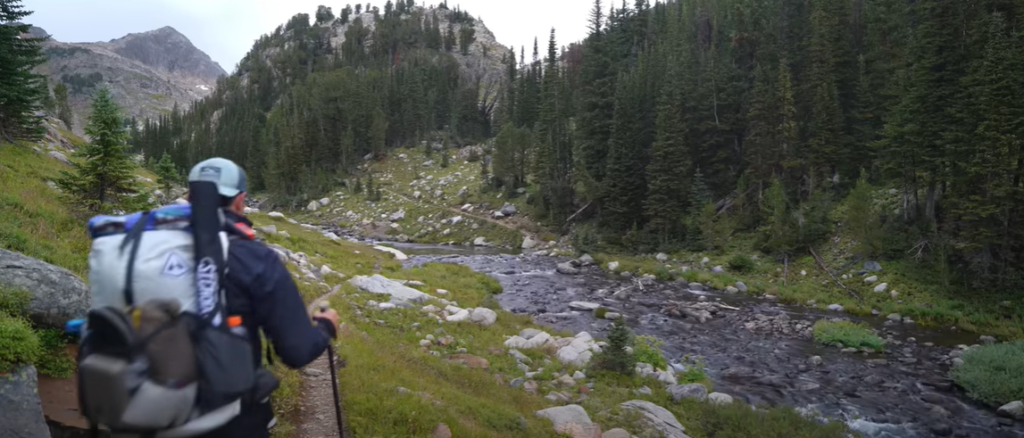
FAQ
Why don’t I like camping?
There could be many reasons why someone may not enjoy camping. Some common reasons include discomfort with the lack of modern amenities, concerns about safety or food preparation, and a dislike for outdoor activities in general. It’s important to understand your own preferences and comfort levels when deciding whether or not camping is right for you. However, it’s worth noting that with the advancements in camping equipment and the growing trend of glamping, there are now many options available for a more comfortable camping experience. If you’ve had a negative experience with camping before, it may be worth giving it another try in a different setting or with different accommodations.
When should you not go camping?
There are a few instances when it may be best to avoid camping. These include severe weather conditions, such as extreme heat or cold, heavy rain or storms, and high wind speeds. It’s also important to check for any potential natural hazards in the area, such as wildfires or flash floods. Additionally, if you have any pre-existing medical conditions that could be aggravated by camping, it may be best to consult with a doctor before embarking on a trip. Ultimately, the decision to go camping should always prioritize safety and well-being. So, if you feel uncomfortable or unprepared for any reason, it’s best to postpone your trip until conditions are more favorable.
Is camping risky?
As with any outdoor activity, there is always some level of risk involved in camping. However, by taking the necessary precautions and being well-prepared, you can minimize these risks and have a safe camping experience. It’s important to familiarize yourself with the area and potential hazards beforehand, follow recommended safety guidelines, and have emergency plans in place. Additionally, it can be helpful to have a first aid kit and basic knowledge of first aid procedures.

Is camping bad for the environment?
Camping can have both positive and negative impacts on the environment. On one hand, spending time in nature can increase appreciation and understanding of our natural world. However, if not done responsibly, camping can also lead to negative effects such as littering, disturbing wildlife habitats, and damaging plants or trees. To minimize your environmental impact while camping, always follow Leave No Trace principles, properly dispose of waste, and avoid damaging vegetation or wildlife.
What are the consequences of camping?
The consequences of camping can vary depending on the individual’s experience and the specific circumstances of the trip. Some potential consequences may include discomfort from weather conditions or lack of amenities, injuries from accidents or encounters with wildlife, and negative impact on the environment if not done responsibly. However, when properly planned and executed with safety in mind, camping can lead to positive outcomes such as improved physical and mental well-being, strengthened relationships with friends and family, and a deeper appreciation for nature.
How healthy is camping?
Camping can have numerous health benefits for both the body and mind. Spending time in nature has been linked to reduced stress levels, improved mood and mental clarity, and increased physical activity. Additionally, camping often involves more outdoor activities such as hiking, swimming, or biking, which can contribute to a healthier lifestyle. However, it’s important to be aware of any potential health risks in the camping environment, such as exposure to extreme weather conditions or insect-borne illnesses. Consulting with a doctor and being prepared with necessary medications or protective gear can help mitigate these risks.
Useful Video: Top Reasons Not to Go Camping EVER
Conclusion
In conclusion, while camping may not be for everyone, it can be a fun and rewarding experience with the right preparation and mindset. By following safety guidelines, being aware of potential risks, and respecting the environment, you can have a safe and enjoyable camping trip. Remember to also get creative with your meals and enjoy all that nature has to offer. Happy camping!
References:
- https://decideoutside.com/reasons-why-camping-is-bad-for-you/
- https://www.environment.sa.gov.au/goodliving/posts/2017/12/reasons-for-camping
- https://www.brokenheadholidaypark.com.au/11665/6-common-reasons-why-people-hate-camping-and-our-fixes/

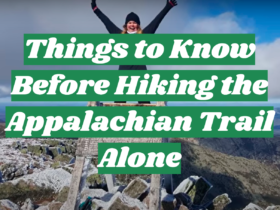
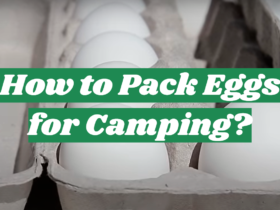
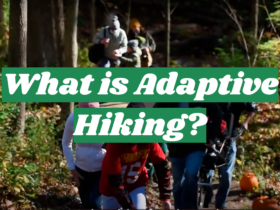
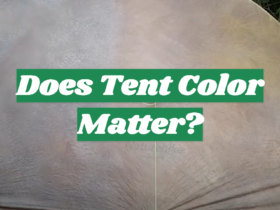
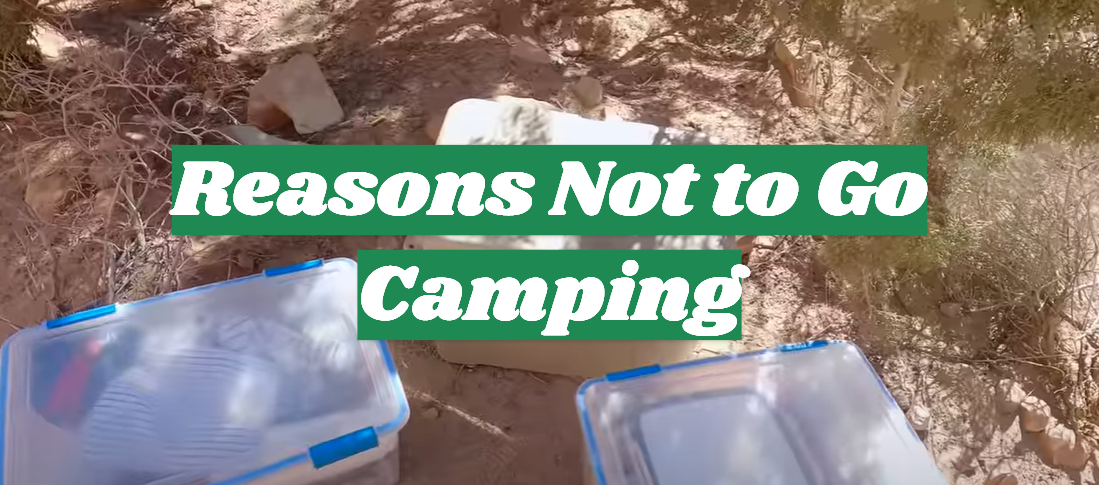


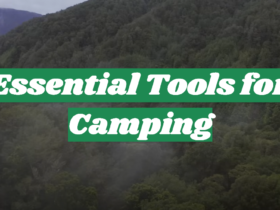
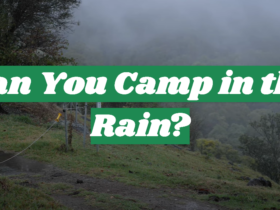
Leave a Review